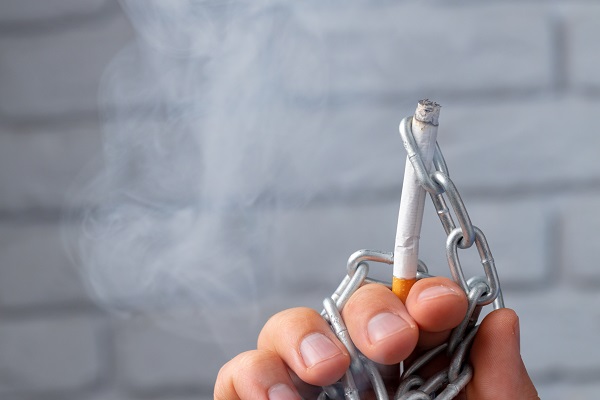In today’s world, pollution is an unavoidable part of life. Be it the thick smog in bustling cities or the invisible fine particles lingering in the air, we all suffer its consequences. However, amidst the undeniable harm caused by air pollution, some try to equate it with smoking, implying that if pollution is inescapable, smoking can’t be much worse. This argument couldn’t be more flawed.
Smoking is a conscious choice, while air pollution is an environmental hazard we have little control over. The two cannot and should not be equated. Worse yet, smoking in polluted environments exacerbates the harm to your body in ways that demand urgent attention. Let’s unpack why smoking is particularly dangerous in polluted air and why the two should never be compared.
Smoking is a Deliberate Act of Self-Harm
Air pollution, as harmful as it is, impacts us involuntarily. You don’t choose to breathe polluted air; it’s a byproduct of industrialisation, urbanisation, and other human activities. Smoking, however, is a choice. Lighting up a cigarette is a deliberate decision to inhale over 7,000 harmful chemicals, including tar, carbon monoxide, and arsenic.
If you choose to smoke in an already polluted environment, you voluntarily add another layer of toxins to your system, overwhelming your body’s ability to cope. While we can work collectively to reduce air pollution, the quickest way to protect your health is to eliminate the toxins you actively introduce into your body through smoking.
The Synergistic Effect of Smoking and Pollution
When it comes to health, the combined impact of smoking and air pollution isn’t merely additive—it’s synergistic. This means the damage caused by smoking in polluted environments far exceeds the harm of each factor alone.
Lung Damage
Air pollution, particularly fine particulate matter (PM2.5), enters deep into the lungs, causing inflammation and reducing lung function. Smoking, on the other hand, destroys lung tissue and paralyses cilia, the tiny hairs that sweep toxins out of your respiratory system. Together, they create a perfect storm: pollution fills your lungs with toxins, while smoking disables your body’s natural defences, leaving you vulnerable to respiratory diseases such as chronic obstructive pulmonary disease (COPD), asthma, and lung cancer.
Cardiovascular Harm
Air pollution is a known risk factor for heart disease, increasing inflammation, raising blood pressure, and triggering clot formation. Smoking amplifies these effects by thickening blood, constricting blood vessels, and introducing toxic chemicals directly into your bloodstream. This combination dramatically increases the risk of heart attacks and strokes.
Air Pollution and Smoking Are Not Comparable
Some argue that since air pollution already damages our health, smoking doesn’t make much of a difference. This argument is not only misleading but dangerous. Air pollution may indeed pose significant risks, but smoking is far worse when it comes to direct and prolonged exposure to harmful chemicals.
Toxin Concentration
A cigarette delivers toxins at concentrations far higher than what you encounter from air pollution. While a polluted city may expose you to 25 micrograms of PM2.5 per cubic meter, a single cigarette can generate up to 12,000 micrograms of particulate matter. Comparing the two is like equating a drizzle to a hurricane.
Duration of Exposure
Air pollution exposure varies depending on where you are, with peaks during certain times of the day or seasons. Smoking, however, involves sustained and repetitive exposure, often over years. A smoker inhales concentrated doses of harmful substances with every puff, compounding the damage over time.
Control Over Risk
You cannot entirely avoid air pollution, but you can control whether or not you smoke. By quitting smoking, you eliminate a significant source of toxins and give your body a better chance of coping with environmental pollutants.
The Broader Impact: It’s Not Just About You
Smoking doesn’t just harm the smoker—it impacts everyone around them. Secondhand smoke exposes bystanders to many of the same toxins, compounding the risks they already face from air pollution. This is especially dangerous for children, pregnant women, and those with pre-existing health conditions.
Furthermore, the production and disposal of cigarettes contribute to environmental pollution. Cigarette butts, the most littered item globally, release harmful chemicals into soil and waterways, adding to the environmental burden.
Closing thoughts: A False Equivalence with Deadly Consequences
The idea that smoking and air pollution are comparable is not just a flawed argument—it’s a dangerous excuse. While air pollution poses serious health risks, smoking in polluted air compounds the damage to your body, making it harder to breathe, harder to live, and harder to recover.
The choice is clear: while we can’t always control the air we breathe, we can control what we choose to inhale. By saying no to smoking, you not only protect yourself but also take a stand for cleaner, healthier living in an increasingly polluted world. It’s time to stop comparing and start acting—because your health is worth it.





